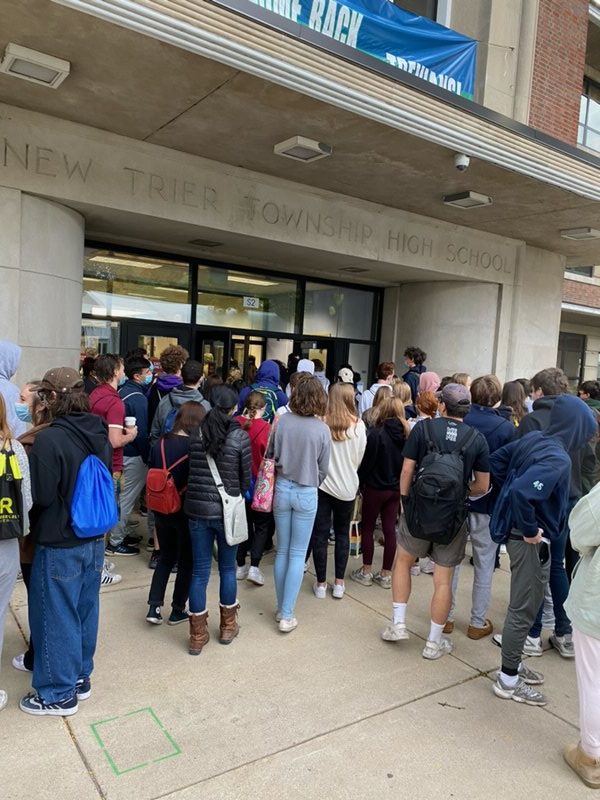Why the October SAT should not have happened
Hosting a standardized test in the middle of a pandemic was reckless
Sussman
Students gather around the front entrance of the school waiting to be let in for the Oct. 14 SAT
On Oct. 14, as seniors poured into school to take the SAT, they were required to wear a mask and have their Ruvna codes scanned at the door.
Despite precautions put in place by the school, the test seemed more like a class reunion for students who hadn’t seen each other since March. They congregated in groups in front of the main entrance before and after the test.
Given the school’s closing just two days prior as a result of rising COVID-19 numbers, and 11 confirmed cases within the school, the SAT should have been canceled.
Although the safety measures put in place by the school might have been adequate on a regular school day, they didn’t take into account the unique nature of hosting a test.
Unlike a regular school day, students were encouraged to enter theschool at the same time, and doors remained closed until a few minutes before the day was to begin. The shared beginning and ending times of the tests lead to large crowds forming and larger lines as students waited to be scanned into the building. .
The SAT is a state requirement, yet many colleges have gone test optional given the circumstances. Many schools in Illinois have scheduled the test for April, assuming the virus might lessen in the spring. New Trier scheduled tests for October and April, giving students the option to wait till spring.
Over 780 seniors were scheduled to take the test on Oct.14, many of whom wanted to submit the score to colleges and get it out of the way. These students understood the risks and felt as if the school protocols would keep them safe.
While some may see this as a step towards ‘a new normal’, we have to remind ourselves of the risks we are taking. We all want life to be as close to normal as possible, including returning to the classroom . However, allowing a large number of students to congregate before and after the test may end up creating an even longer pause than anyone wants.







































